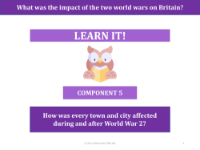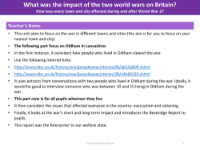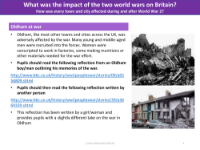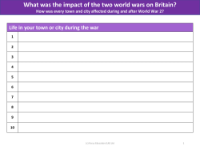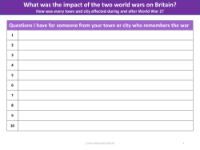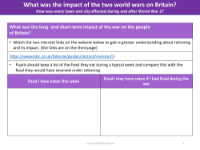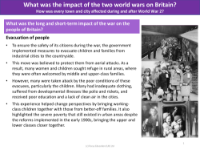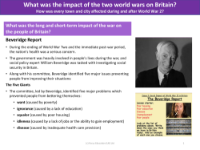What was the short and long-term impacy of was on the British people - World War 1 and 2 - Year 6
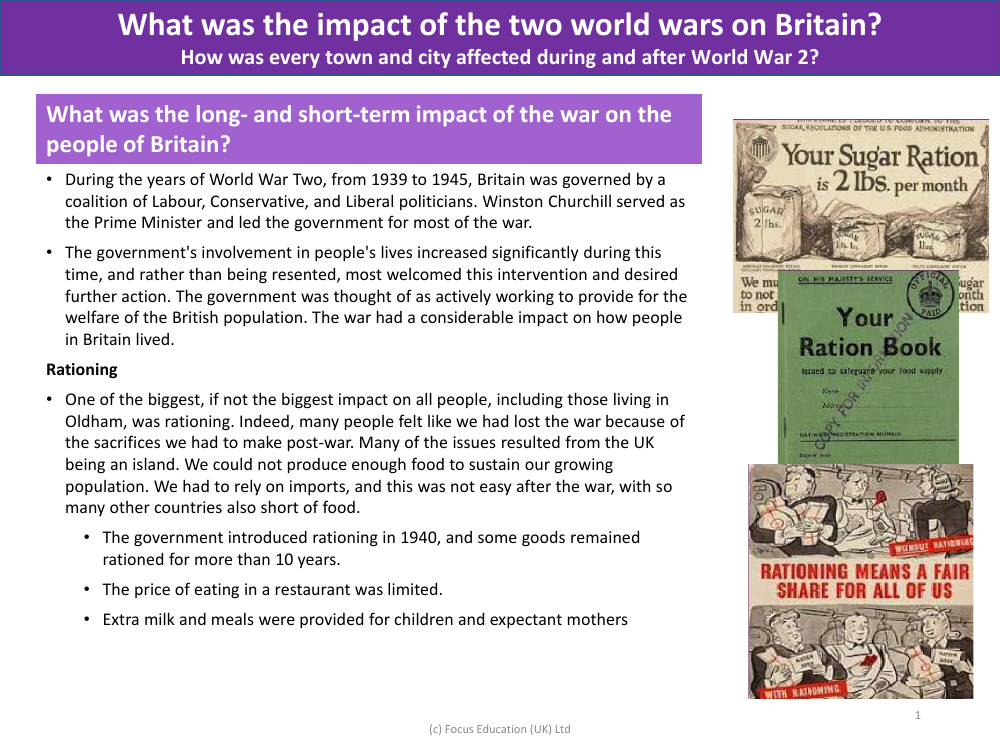
History Resource Description
The impact of the two world wars on Britain was profound, affecting every aspect of life for its citizens. During World War Two, from 1939 to 1945, the British government, a coalition of Labour, Conservative, and Liberal politicians led by Prime Minister Winston Churchill, saw a significant increase in its involvement in the daily lives of the people. This period marked a shift in the relationship between the state and its citizens, with the government taking a more active role in ensuring the welfare of the British population. The interventions, rather than being opposed, were largely welcomed by the public, who sought even more action from their leaders. The war brought about considerable changes in how the British people lived, with the government's presence felt more than ever before.
One of the most substantial and enduring impacts of the war was the implementation of rationing. Beginning in 1940, rationing affected everyone, including residents of towns like Oldham, and continued for over a decade after the war's end. Many felt the effects of rationing so keenly that it seemed as though Britain had lost the war, due to the sacrifices that had to be made in the post-war period. The UK's status as an island nation meant that it could not produce enough food to support its growing population and had to rely on imports. In the aftermath of the war, this became increasingly difficult as many other countries also faced shortages of food. The government controlled the price of eating in restaurants and provided additional milk and meals for children and expectant mothers to help alleviate some of the hardships brought on by rationing. Every town and city in Britain felt the impact of the war, both during the conflict and in the years that followed, as the nation worked to rebuild and recover from the widespread disruption and deprivation.
